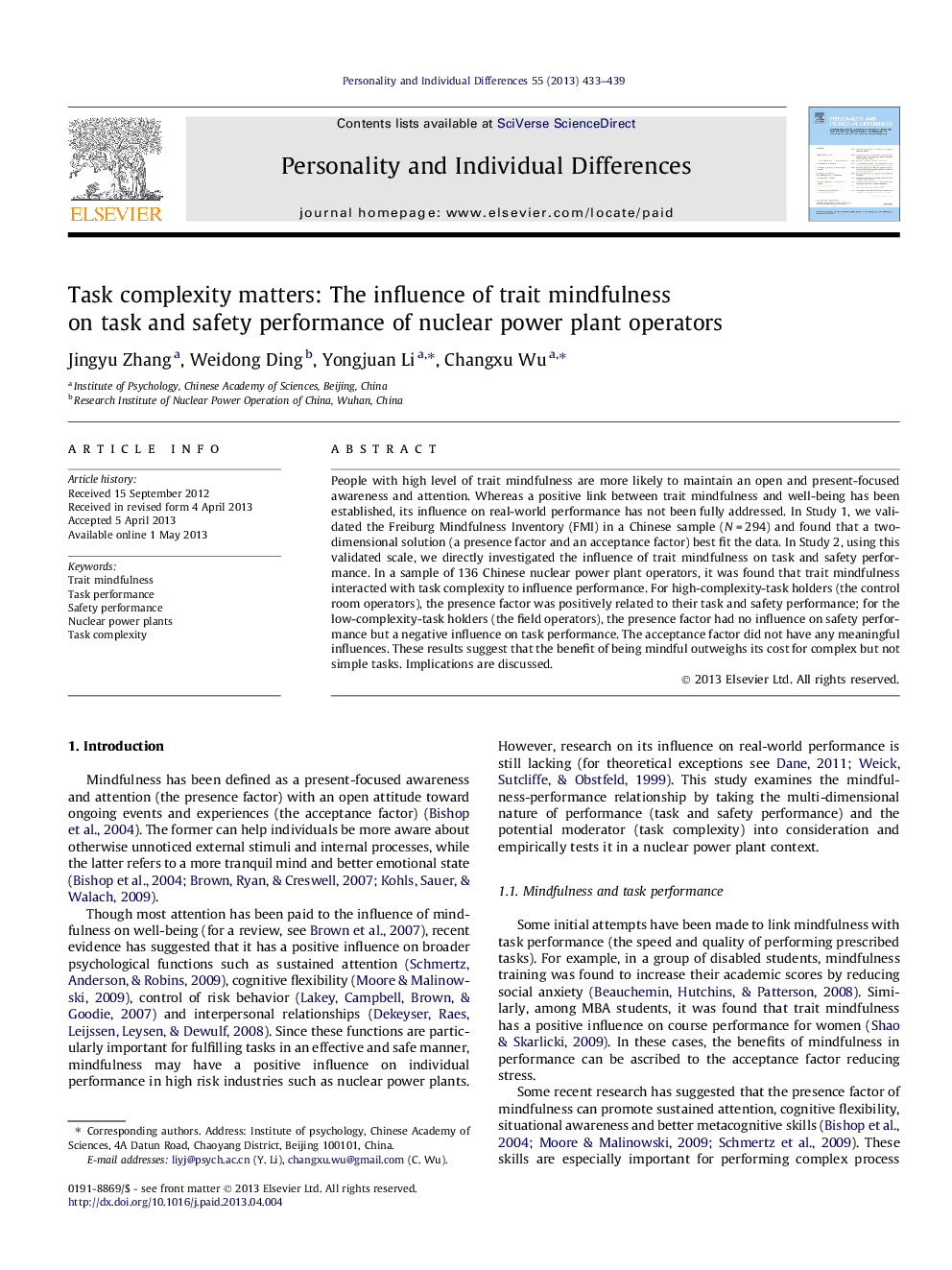| Article ID | Journal | Published Year | Pages | File Type |
|---|---|---|---|---|
| 891166 | Personality and Individual Differences | 2013 | 7 Pages |
•The Chinese version of Freiburg Mindfulness Inventory was firstly validated.•The mindfulness-performance link was further investigated with 136 NPP operators.•The presence facet was found to influence operators’ performance.•Task complexity was found to be an important moderator of this relationship.•The cost-benefit of being mindful was different on task/safety performance.
People with high level of trait mindfulness are more likely to maintain an open and present-focused awareness and attention. Whereas a positive link between trait mindfulness and well-being has been established, its influence on real-world performance has not been fully addressed. In Study 1, we validated the Freiburg Mindfulness Inventory (FMI) in a Chinese sample (N = 294) and found that a two-dimensional solution (a presence factor and an acceptance factor) best fit the data. In Study 2, using this validated scale, we directly investigated the influence of trait mindfulness on task and safety performance. In a sample of 136 Chinese nuclear power plant operators, it was found that trait mindfulness interacted with task complexity to influence performance. For high-complexity-task holders (the control room operators), the presence factor was positively related to their task and safety performance; for the low-complexity-task holders (the field operators), the presence factor had no influence on safety performance but a negative influence on task performance. The acceptance factor did not have any meaningful influences. These results suggest that the benefit of being mindful outweighs its cost for complex but not simple tasks. Implications are discussed.
